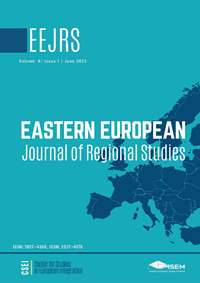LABOR MIGRATION AND THE PHENOMENON OF TRANSNATIONAL FAMILIES FROM THE REPUBLIC OF MOLDOVA
LABOR MIGRATION AND THE PHENOMENON OF TRANSNATIONAL FAMILIES FROM THE REPUBLIC OF MOLDOVA
Author(s): Dorin VaculovschiSubject(s): Economic development, Migration Studies, Socio-Economic Research
Published by: Center for Studies in European Integration, Academy of Economic Studies of Moldova
Keywords: labor migration; transnational families; children left without care after migration;
Summary/Abstract: Labor migration processes from the Republic of Moldova have become an important factor in combating poverty and increasing the well-being of the population of the Republic of Moldova. Moreover, the economic growth registered by the Republic of Moldova during the last years is precisely due to the remittances of migrant workers. However, the migratory phenomenon in the Republic of Moldova also generates certain risks, such as human trafficking, accelerated demographic aging and the expansion of the number of transnational families, which also generates the problem of children left without parental care. As such, the phenomenon of transnational families is a global phenomenon, and various countries, through their policies, try to mitigate its negative effects. The purpose of this article is to analyze the impact of labor migration on the expansion of the phenomenon of transnational families in the Republic of Moldova, as well as the situation of children left without care as a result of labor migration. The article comes with a series of conclusions and recommendations regarding the minimization of the negative effects of labor migration, as well as the development of social services necessary to prevent the phenomenon of children left without parental care as a result of labor migration.
Journal: Eastern European Journal for Regional Studies (EEJRS)
- Issue Year: 9/2023
- Issue No: 1
- Page Range: 153-162
- Page Count: 10
- Language: English

